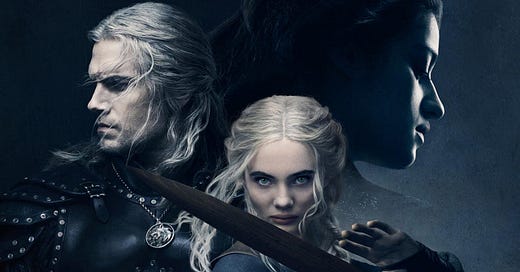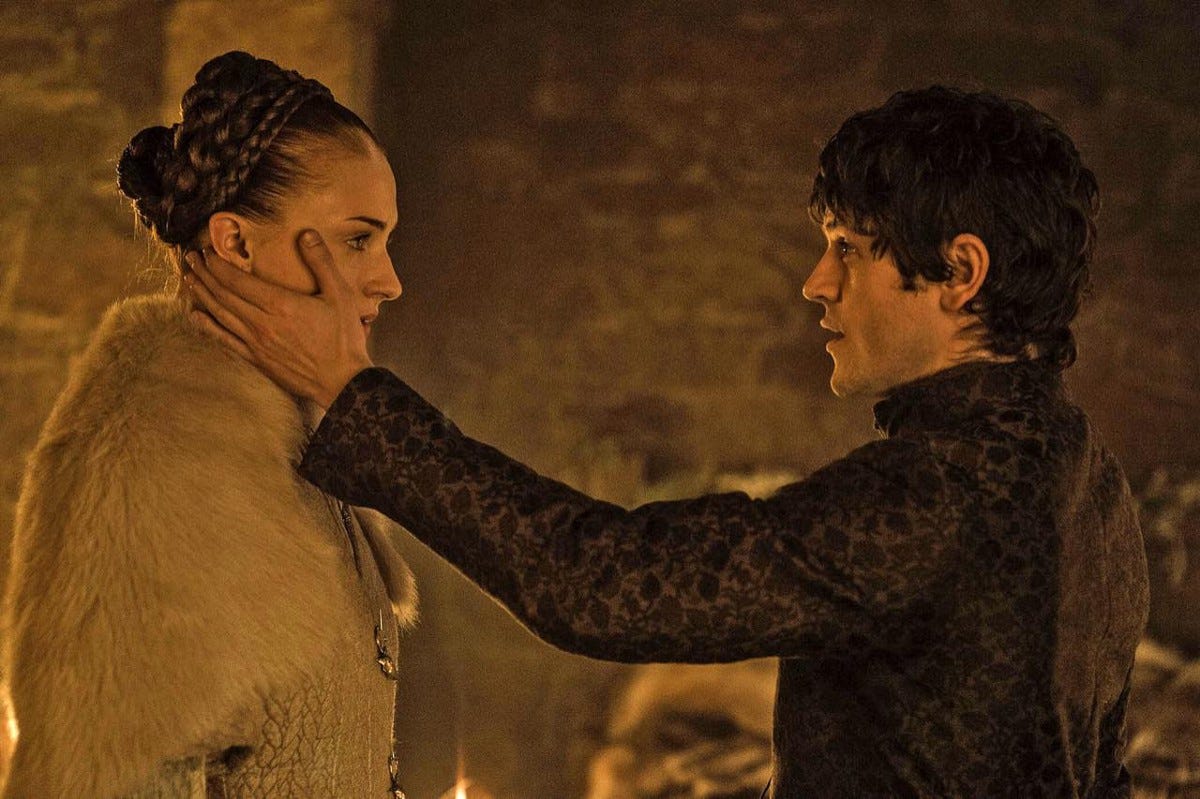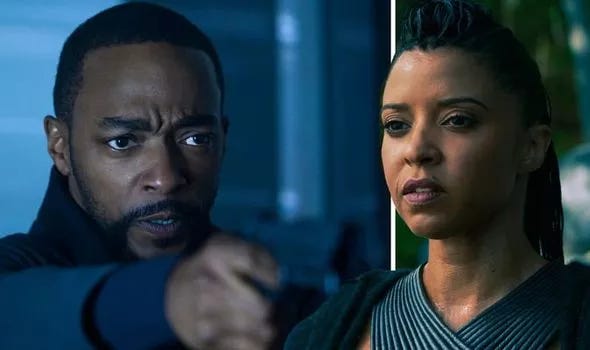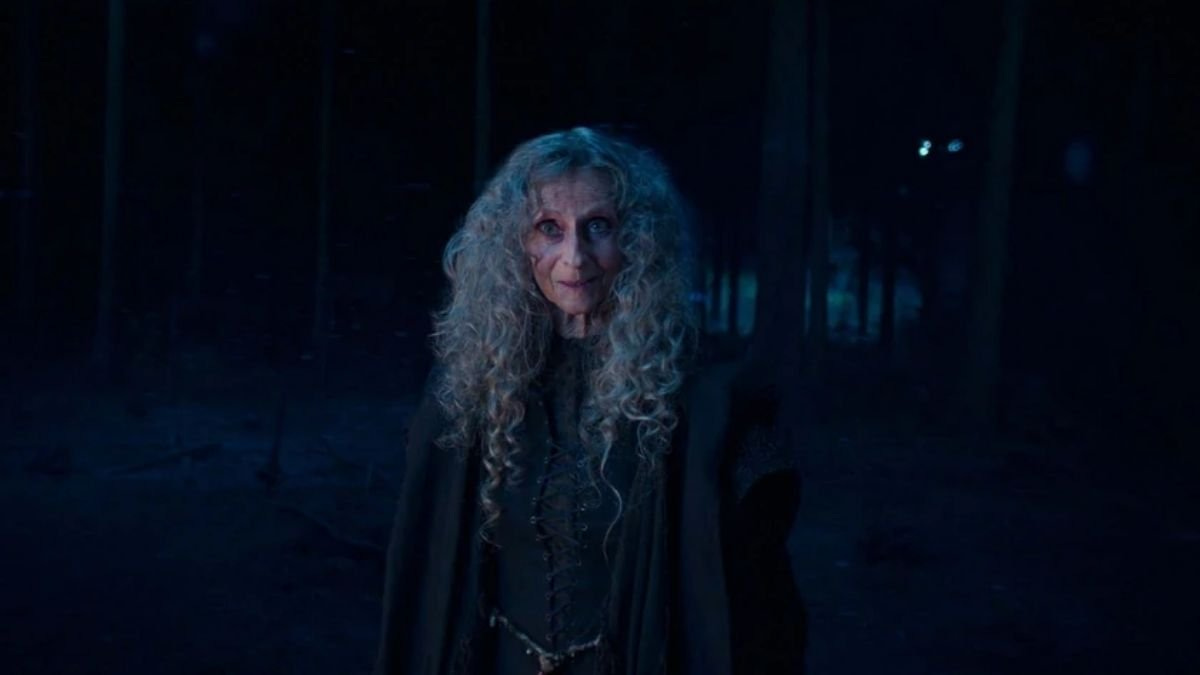The Absurd Failure Of Modern TV Fantasy And Sci-Fi Adaptations
Stick to the script. The source material is good and doesn't need this many changes!
I have been letdown too many times to count when it comes to adaptations of popular sci-fi, fantasy, and comic book fiction to TV and movies (and video game adaptations, though that’s another story for another time).
Sometimes, despite my frustration, I have a little sympathy. The poor fools who agreed to adapt George R.R. Martin’s A Song Of Ice And Fire before it was finished ran into a unique obstacle when they ran out of source material entirely. With nothing of Martin’s left to adapt, they had improvise—and rush—the ending.
It didn’t work, but it wasn’t entirely their fault. Martin could have hurried up and written the damn books, or not agreed to option them until they were done. That might have been a real motivator for the sluggish fantasy author, something to liven his slog.
Other shows have no excuse. I’ll use three to illustrate my point: The Witcher, The Wheel Of Time and Altered Carbon.
Two of these shows aired on Netflix and the other on Amazon Prime. All three share one thing in common—one thing that I believe has contributed the most to their shortcomings: Each adaptation has cavalierly and arrogantly chosen to ignore the source material.
Even Game Of Thrones did this before running out of source material entirely, though again I can’t really blame them. I’d say the first big red flag in that show was the decision to have Littlefinger take Sansa to the North. They cut the role of Jeyne Poole entirely, and filled it—inexplicably and foolishly—with Sansa, instead.
This was a huge narrative faux pas and an unforced error. It fundamentally altered so many massive events to come, setting up some of the show’s worst storylines down the road, like Sansa and Arya’s fake squabble used to trap the suddenly rather stupid Littlefinger in his scheming. Of course, Sansa remains at the Eyrie with Littlefinger and her cousin in the books, and has remained there now for seventeen years. The eldest Stark girl had all of three POV chapters in 2005’s A Feast For Crows.
Just typing this makes me feel old. Has it been so long?
Changes to a story that might seem small to a TV producer can have massive repercussions down the road. It’s the narrative equivalent of the butterfly effect. This should be obvious to someone whose entire job is to faithfully adapt a book into a show. This Sansa/Jeyne Poole example is an important one. It fundamentally alters everything else that takes place in the North. Jon Snow breaks his oath to the Night’s Watch (leading to his death in the books, though this is where things have lingered ever since) because he thinks Arya is down in Winterfell, held against her will by the rotten bastard, Ramsay Bolton.
But it is Jeyne—poor Jeyne—not Arya who is Ramsay’s wife and the victim of his cruelties. Jeyne, and not Sansa, who Theon is forced to watch raped and tortured. Sansa’s fate lies on some other, mysterious path. Littlefinger’s as well. That entire story will be different in Martin’s books, and the ramifications of that are not insignificant.
Mind you, Game Of Thrones, up until the books end, is one of the most faithful adaptations of an epic fantasy series ever brought to the small screen. Sure, there are some big changes and lots of cut content, but that’s something I think we can all agree must happen when adapting prose to television. Same with film.
The Lord Of The Rings, like Game Of Thrones, is perhaps the greatest fantasy adaptation of all time. I had my gripes about what Peter Jackson changed—the scouring of the Shire was important!—but overall it was damn near perfect in terms of staying true to the spirit, themes and narrative of Tolkien’s work. Look no further than The Hobbit to see a counter-example.
Game Of Thrones had plenty to gripe about as well. Even so, HBO’s smash hit devoted a season to each of the first two books and two entire seasons to the third. Seasons 5 and 6 were essentially adaptations of the fourth and fifth books, though we started to inch into new territory as well (with Sansa and with that Hodor episode in Season 6—an episode which aired six years ago, dear lord).
I miss writing about Game Of Thrones more than I realized I would. What fun it was to discuss those episodes. What fun it was to get so much traffic on such a fun topic! Those were the days.
I wonder if we will ever see such a faithful adaptation again. It ended badly, of course, but then its creators ran out of source material. Other, more recent projects, have no similar excuse.
The Failure Of The Modern TV Adaptation
And so we return, at last, to the three shows I mentioned earlier: The Witcher, Altered Carbon and The Wheel Of Time. There are others, naturally, but these should serve to illustrate my point.
These three shows have one thing in common: Each of them strayed wildly, and bizarrely, from the source material for no apparent reason.
We’re not talking about cutting stuff to make room, or changing up some book content that wouldn’t translate well to screen. As discussed above, there are always going to be sacrifices and changes and cuts and tweaks to an adaptation. The word itself implies some kind of transformation—we don’t call these “replications” after all.
The Wheel Of Time may be the most egregious in its first season, but I think that’s mostly because it was just poorly done all around, whereas the other two examples have—in my humblest of opinions—generally higher quality in terms of production value, cinematography, and so forth. We’ll get to that in a minute. Let’s start with . . .
Altered Carbon
I loved the first season of Altered Carbon, but it seems apparent that some of the big changes they made from the books led directly to a deeply lackluster Season 2 (though I also would argue that the move from Joel Kinnaman as Takeshi Kovacs to Anthony Mackie was a monumental casting error—even if they had to switch, I think they needed a different actor than Mackie).
Chief among these changes—as it pertains to the entire plot of Season 2—is Quellcrist Falconer, who is presented as a long-lost love interest in the show, but who lived before Kovacs was even born in the books. This isn’t such a big deal in the first season, but ends up forming pretty much the entire plot of the second, much to the show’s detriment and, ultimately, its tragic cancellation. What if, instead, the show’s creators had simply adapted the books as they were written, as faithfully as possible?
Or, like, even a little bit? The sequel, Broken Angels, shares literally none of the same plot as the second season of the show. It would be like HBO taking Game of Thrones and writing an entirely new story for Season 2 that was just a romance between Jon Snow and Daenerys right off the bat, though even that would be truer to the story than Altered Carbon’s second season.
The only change they kept was the 30-year time-jump, and if that’s all you’re going to keep, you might as well ditch it, too. Fans would have been happier with a season 2 that used the same characters and cast—Kinnaman remaining Kovacs along with OG Kovacs, played by Will Yun Lee (who would have been great as main Kovacs also) and Martha Higareda’s Ortega as a continuing main character etc.)
Here’s the plot description of Broken Angels on Amazon:
Cynical, quick-on-the-trigger Takeshi Kovacs, the ex-U.N. envoy turned private eye, has changed careers, and bodies, once more . . . trading sleuthing for soldiering as a warrior-for-hire, and helping a far-flung planet’s government put down a bloody revolution.
But when it comes to taking sides, the only one Kovacs is ever really on is his own. So when a rogue pilot and a sleazy corporate fat cat offer him a lucrative role in a treacherous treasure hunt, he’s only too happy to go AWOL with a band of resurrected soldiers of fortune. All that stands between them and the ancient alien spacecraft they mean to salvage are a massacred city bathed in deadly radiation, unleashed nanotechnolgy with a million ways to kill, and whatever surprises the highly advanced Martian race may have in store. But armed with his genetically engineered instincts, and his trusty twin Kalashnikovs, Takeshi is ready to take on anything—and let the devil take whoever’s left behind.
So yeah, not exactly the story of Quellcrist Falconer returning from the dead to get revenge on characters we don’t really care about in the first place!
I realize there’s a tricky balance. Sometimes things also have to be added or fleshed out in a series—like the role of the Bancroft “meths” and Ortega, which is much less prominent in the book but works well onscreen. Still, the massive changes to the story especially in Season 2 were a mistake that the show could not recover from. Its creators needed to decide whether they wanted to extend Altered Carbon into a fan-fic series set in the same time with the same characters, or adapt the next book, Broken Angels, for Season 2. They tried to have their cake and it, too, and the show collapsed.
The Witcher
This woman is the chief protagonist of The Witcher’s second season on Netflix. Her name is Voleth Meir and she’s called the Deathless Mother. It turns out she’s a demon who feeds on pain and suffering and she’s used Yennefer, Fringilla and Francesca to get hold of Ciri in order to make her way back to her own world—or sphere—where she joins up with her buddies in The Wild Hunt.
Creating some new characters for your campaign is nothing new—but do we really want showrunners to treat the source material like a Dungeons & Dragons DM would treat their campaign? It’s one thing to take the Forgotten Realms setting and add in some new NPCs; it’s another to make a brand new villain if you’re “adapting” The Blood Of Elves by Andrzej Sapkowski. Voleth Meir was created by the show’s writers and shows up nowhere in The Witcher books.
Indeed, Season 2 strays far afield from the source material, giving characters like Yennefer strange new motives that fundamentally alter their place in the story. Meanwhile, characters like Eskel—who play an important role in the books—were killed off for no good reason. If anything, why not create a brand new character to be killed by the leshy?
Here’s showrunner Lauren Schmidt Hissrich’s explanation for why they chose to kill off Eskel before telling any of his story:
“In all honesty, the very first version of the script that we wrote, [there] was a brand new witcher that we’d never met before, we’d never heard of, and all of a sudden we were like, ‘Oh, our audience is going to meet Coen and Lambert and Eskel and, you know, John. Who’s gonna die? John is going to die.’ So we thought about it really hard, and I know that there are fans who love Eskel and feel like, ‘Why would we do that?’ But honestly his death is what changes everything for Geralt and I think it propels Geralt’s need to figure out what’s going on with Ciri and to do it fast, because he knows he’s going to risk losing her and his brothers if he doesn’t.”
Um, why?
I’m pretty sure there are lots of other ways to give Geralt motivation to “figure out what’s going on with Ciri” that don’t involve fundamentally changing a beloved character and then killing him off. For instance, simply pretend that “John” was really important to Geralt. Make his death count. You’re already fudging the story, fudge it more and in a way that won’t piss off fans.
Or—and I know this is going out on a limb—Geralt might have cared about figuring out the Ciri business without any motivation at all, becuase he cares about Ciri. Crazy!
Of coures, the Ciri business is all linked back to Voleth Meir’s plot and the new monsters that have arrived and all of that is just fan-fiction and not derived from the books at all. In fact, The Witcher’s second season seems hellbent on getting rid of as much Slavic lore as possible, and turning what could be a very fascinating monster hunter show that delves deep into that lore like some fantasy X-Files into an epic fantasy where literally every character is trying to find Miss McGuffin, er, Ciri.
Basically, the second season of The Witcher diverged and then diverged some more from the source material, and along the way it became a much more bland, much more generic epic fantasy than it has any right to be. The games, meanwhile, preserve the look and feel and tone of the books much better, while creating their own stories faithfully. You don’t have to tell the exact same stories as the source material, but at least be honest about what you’re trying to do. If it’s not adapt The Blood Of Elves, fine. Just don’t pretend.
The new Halo TV show coming to Paramount+ might end up being terrible, but at least the creators of that show are working with the creators of the Halo video games and have come up with purposefully different timelines. The show is being referred to as the ‘Silver’ timeline, and the two are not meant to be canonically consistent. Which brings me to . . . .
The Wheel Of Time
Of the shows we’re discussing today, none strays further from the source material or in more fundamentally pointless and bizarre ways than Amazon and Rafe Judkins’s The Wheel Of Time.
Honestly, what the hell? I’m not even a huge fan of these books (I’ve only read the first two) and I’m annoyed beyond all reckoning at just how unfaithful and ideologically driven this adaptation has been.
I won’t get too far into the ideology. The video up above delves into that territory and the whole tokenistic approach to race and diversity in fantasy shows (and even historical shows like Vikings: Valhalla which has gender-and-race swapped a historical Viking dude into a black woman).
Still, I can’t help but think ideology led to some of the choices made in the Wheel adaptation. A fundamental part of Robert Jordan’s stories hinges on the fact that men can no longer use magic—aka the One Power—without going mad. The Aes Sedai, now entirely female, hunt down and “gentle” male mages before they go breaking stuff (like the whole world) and it’s a Very Big Deal when one of the male characters learns that he not only can channel, but that he might be the Dragon Reborn, a reincarnation of one of history’s most powerful mages.
In the show version, however, the Dragon Reborn is kept a mystery and we’re told that men and women can both potentially be the reincarnated magic user, which essentially just tosses out the entire plot because the showrunner and writers felt the need to pander to the current cultural zeitgeist and gender activists. Here’s the problem: It’s not ever good enough. The story is still going to be deemed problematic by the scolds, only now a lot of hardcore fans are unhappy also.
Cutting content from The Wheel Of Time in order for it to fit in a television series is something pretty much everyone knew would have to happen, but Amazon didn’t simply cut, it added lots of new content as well, including major storylines about characters that aren’t in the books at all. It’s one thing to flesh out a character like the False Dragon, Logain Ablar, who has a fairly important part in the original stories but not a lot of “screen time.” It’s another entirely to create new Warders and Aes Sedai in order to cram in entirely new storylines while cutting important pieces of the books.
The Season 1 finale was the final straw for me. It felt cheap and rushed and included a scene where a massive army of Trollocs (this story’s Orcs, basically) is destroyed not by the Dragon, not by the trained Shienaran troops sworn to defend the Borderlands—but by five women who aren’t even trained Aes Sedai who somehow manage to pull together enough pure, raw magic to level thousands of their enemies (and mostly destroy themselves in the process).
Again, these aren’t the highly trained, skilled sorceresses of the White Tower, these are three untrained, non-Aes Sedai women and two young women who have yet to even visit the White Tower to begin their training. All by their lonesome they stop the Dark One’s armies and save the day.
I think it goes without saying that this is not how The Eye of the World ends. But really, it’s not even close. So many bits of The Wheel Of Time are changed, cut, distorted, reimagined, it doesn’t feel like the same story at all. While Game Of Thrones and Peter Jackson’s The Lord Of The Rings both made big changes to the story, they still each stuck as closely as possible to both the spirit and to the letter of the stories they were adapting.
Why is this so hard nowadays? Why do so many showrunners and writers feel the need to make drastic changes to the works of ficion they’re adapting? Wheel Of Time showrunner Rafe Judkins apparently wanted to not focus so heavily on Rand al’Thor since later books in the series are more ensemble, but that’s a terrible excuse. You can focus on one character early on and expand to an ensemble in later seasons. Orange Is The New Black managed that just fine. Plenty of shows do.
Shows like Altered Carbon, The Witcher and The Wheel Of Time would all benefit from trying a little harder to actually adapt the original stories they’re working from. Again, this doesn’t mean zero changes. Characters have to be cut. Certain subplots must be tossed or rearranged. Things are condensed and altered. It’s inevitable. But every change should be as true to the original story as possible, and that’s clearly not the case when you’re inventing new villains like the Deathless Mother or completely rewriting how the magic systems work in The Wheel of Time.
Sadly, I fear this is a trend that isn’t going away anytime soon. I often argue that one way to avoid at least some of these problems is to stop making everything a live-action adaptation. I’d still love to see The Walking Dead and Game Of Thrones made into animated series. Joe Abercrombie’s books are also perfect for a TV adaptation, but I’m so jaded at this point I can’t imagine how badly they’d bungle it (imagine trying to make those books at once racially diverse and totally color-blind like Witcher and WoT, when race and immigration are dealt with head-on in the stories; how would Ferro call everyone who annoyed her a “pink”?)
Thanks for reading, my dearest droogies. My apologies for the infrequency of posts lately. I’ve been going through a very difficult time in my personal life and I appreciate your patience.
Please leave a comment and let me know what you think of modern TV adaptations and how they work or don’t work. Peace!








I will just add this: The people and companies responsible for adapting these works of fiction should remember that the reason they're being adapted in the first place is people love them because of their inherent quality. If these weren't good in their own right, they wouldn't have massive fan-bases and they wouldn't get adapted as TV shows or movies.
So stick to what made them great in the first place and stop trying to reinvent them entirely. Changes are necessary, nobody is arguing that point, but ignoring the source material in favor of your fan-fiction is deeply irresponsible and creatively kind of chicken-shit.
As I watched the new Witcher season I realized that they also brought along a few lore changes out of another Netflix production: Nightmare of the Wolf. In my opinion, this made the series less credible and it increased the feeling of being out-of-touch with the source material.
Beware: I will post some spoilers to Nightmare of the Wolf.
The Witcher: Nightmare of the Wolf is an animated Netflix movie about Vesemir's backstory. It portrays how Vesemir became a Witcher and led up to the sacking Kaer Morhen in the final act of the movie. Vesemir's mentor (in the movie) is an old Witcher named Deglan who is (to my knowledge) never mentioned in the books, and he just so happens to be a complete bastard. Surprisingly, they changed the story of the sack of Kaer Morhen to that the Witchers largely deserved it. Here are some other backstory changes (that I noticed) from Nightmare of the Wolf:
- Wolf school is the only Witcher school on the continent
- Monsters were created as weapons against non-humans (this baffles me)
- The sack of Kaer Morhen was pretty much orchestrated by a single female mage (with a kind of understandable agenda considering how evil Deglan was)
- The sack of Kaer Morhen didn't quite succeed and actually Vesemir escaped with knowledge of how to create new Witchers (see where Season 2 got its stuff from now?)
They also made up one or two new monsters and I'm not totally sure whether the movie's time scale fits into the Witcher chronology (I am not THAT much of a Witcher nerd). This ties into Season 2 because Deglan is namedropped and they talk about the sack of Kaer Morhen as it happened in Nightmare instead of how it's portrayed in the books. Vesemir even uses his knowledge of Witcher creation (despite this not being something he should know about). Weird! Perhaps there was some corporate meddling, like trying to advertise Nightmare to the Netflix viewers? (I was not surprised that after finishing Season 2 Netflix brought up a suggestion to watch Nightmare next.)
I was really saddened that The Witcher S2 killed Eskel. One of the weirdest goddamn decisions.